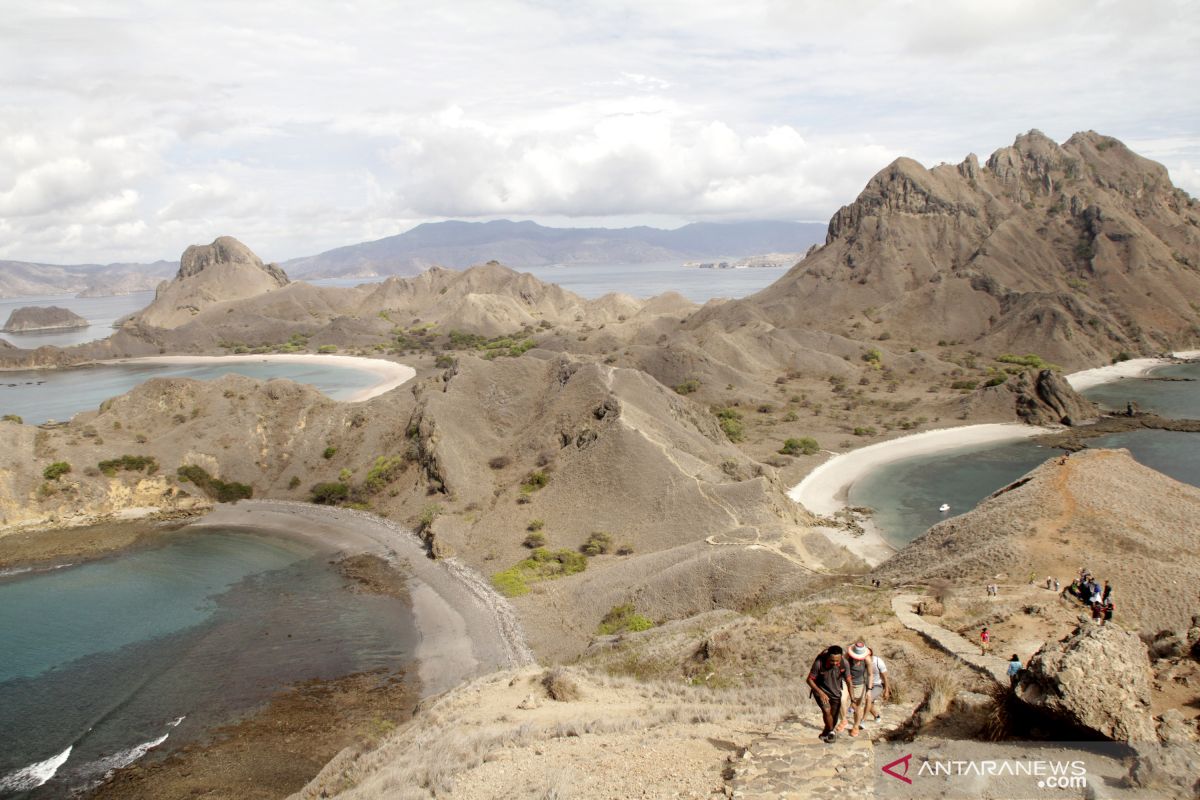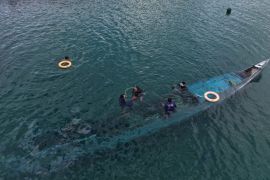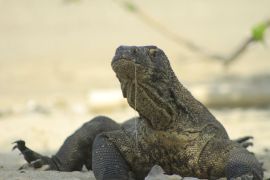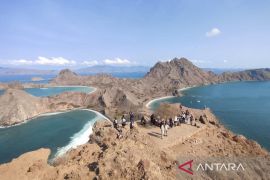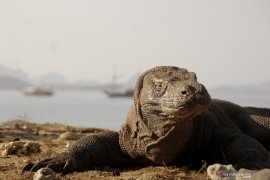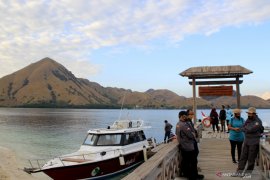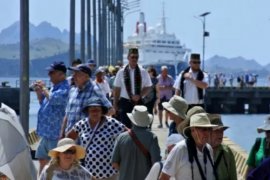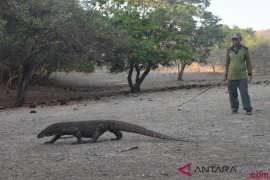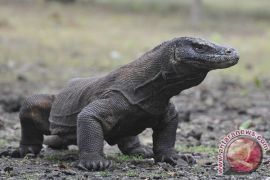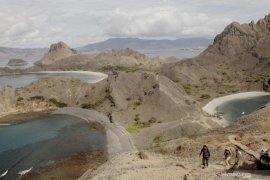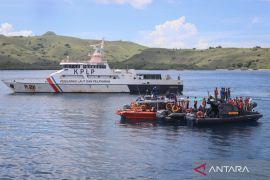“We have had no trip since March 22 when the Komodo National Park director announced the park’s closure due to COVID-19,” she told Bisnis journalist on April 6, 2020.
Her employees received full salaries for the last time in February, while they got just quarter of their salaries in April.
All diving operations in Komodo Island and Labuan Bajo in West Manggarai District, East Nusa Tenggara (NTT) Province, closed since no tourist had visited the two destinations owing to the novel coronavirus outbreak.
The Komodo National Park has been closed from March 22 to May 29, 2020, to support the central government’s policy of large-scale social distancing measure imposed following announcement of the country’s first confirmed COVID-19 cases on March 2, 2020.
The Komodo Labuan Bajo International Airport has also temporarily ceased its operations from April 24 to June 1, 2020, in line with restricting the movement of people.
The Komodo National Park and its adjacent Labuan Bajo, both with unique and enthralling scenery, fauna, and flora, were recently designated by the central government as premium tourist destinations.
However, with the global economy, including the tourism industry, bearing a severe brunt of the COVID-19 pandemic, the number of tourists visiting the two destinations has dropped drastically, up to some 50 percent, since February.
"The number of foreign tourists to Labuan Bajo has decreased by nearly 50 percent," Agustinus Rinus, head of the West Manggarai tourism office, stated on April 6.
During the February-March 2020 period, 3,459 foreign tourists had visited Labuan Bajo, down from 6,308 during the same period last year. Most of the 4,412 tourism workers were laid off following the temporary closure of several businesses, he pointed out.
Several tourism workers in West Manggarai were earlier traditional fishermen, who had to switch their jobs, as fishing is banned in Labuan Bajo for the sake of nature preservation.
The current situation is quite an irony, as last year, the NTT government was upbeat about some 50 thousand foreign tourists visiting Labuan Bajo and Komodo National Park where a membership-based ticketing system would be applied.
The new entry fee system would be effective this year, I Wayan Darmawan, head of the NTT Tourism and Creative Economic Office, had stated last October.
He claimed that several foreign tourists from various countries have, so far, applied for Komodo Island’s membership cards.
"Komodo Island has been improved, and tourists will receive optimal and appropriate services. The policy of membership-based ticketing will not affect the flow of tourists to the region," he expounded.
Komodo dragon is one of the world's rarest animals, so their protection and preservation is of paramount importance. Their ecosystem must be protected by limiting the number of tourist visits, he emphasized.
The new entry fee to Komodo Island is US$1,000, or some Rp14 million, per person per year, and is valid for multiple visits. Without the membership card, visitors can only visit smaller islands inhabited by the Komodo dragons.
"Non-premium tourists will be directed to smaller islands, such as Rinca. They will not be able to visit Komodo," Coordinating Minister for Maritime Affairs Luhut Binsar Pandjaitan had noted last year.
The membership-based ticketing system is imposed on the basis of a technical study by several parties. The new system will automatically restrict the number of tourists visiting the island in pursuit of striking a balance between conservation and raking in tourist dollars.
The Komodo Island attracts 170 thousand tourists annually, thereby raising concerns among locals over the sustainability of the island's environment.
"Komodo Island will not be closed. The central and regional governments as well as other related parties will manage tourism on the island, issuing a limited number of tickets for tourists each year," he stated.
Founded in 1980, Komodo National Park is home to the endemic Komodo dragon, the world’s only surviving prehistoric giant lizard. The park includes the three larger islands of Komodo, Rinca, and Padar as well as numerous smaller ones, with area spanning a total of 1,817 square kilometers.
In 1977, Komodo National Park was named a biosphere reserve by the United Nations Educational, Scientific and Cultural Organization (UNESCO). In 1991, UNESCO named the island, where some three thousand komodo dragons roam freely, a world heritage.
In 2011, the Komodo National Park was included on the list of New7Wonders of Nature sites, along with the Amazon, Halong Bay, Iguazu Falls, Jeju Island, Puerto Princesa Underground River, and Table Mountain.
Labuan Bajo is one of the 10 priority tourist destinations designated by the government as "New Bali." The nine other destinations are Borobudur in Central Java; Mandalika on Lombok Island, West Nusa Tenggara; Bromo-Tengger-Semeru in East Java; Pulau Seribu in North Jakarta; Lake Toba in North Sumatra; Wakatobi in Southeast Sulawesi; Tanjung Lesung in Banten; Morotai in the northern region of Halmahera in the Maluku Islands; and Tanjung Kelayang in Belitung, Bangka Belitung.
Related news: NTT upbeat 50,000 foreigners will visit Komodo Island in 2020
Related news: Government to put cap on visitor numbers to Komodo Island
EDITED BY INE
Editor: Suharto
Copyright © ANTARA 2020
